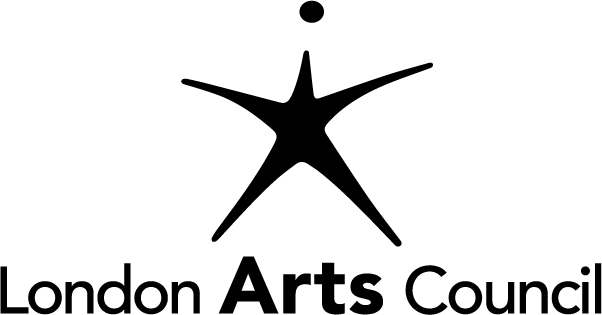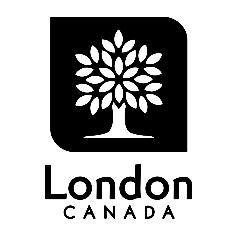|
We have received a range of responses from the community in regards to the ongoing catastrophe in Gaza, and are grateful to everyone that has reached out to share their concerns, critiques, and support. ECH received this statement by Riwaa Abuquta, a young writer from Gaza, who sent her statement to Deborah Root here in Canada.
From Deborah Root October 17, 2023 Riwaa Abuquta is a 29-year-old writer in Gaza, living in Rafah along with her family. She became a writing mentee a few years ago and we've since become friends, staying in regular touch. We’ve continued to speak over the last few days, via What’sApp (when she’s able to get a signal). Conditions are increasingly dire, with some people trying to desalinate water by soaking potato pieces to draw out the salt (it doesn't work). She wrote in a message: "Every morning we get up feeling like we're drowning." Yesterday Riwaa asked me what people in Canada are saying about Gaza, so I sent her the October 16 ECH statement. That ECH statement is giving her and others in Rafah the hope that they are not as alone as they feel in the midst of the siege. Last night she wrote her own statement, an amended version of her Facebook post of October 12, editing the piece through the sound of falling bombs. She asked me to pass it along to ECH, so we can understand how someone on the ground in Gaza is thinking. For Riwaa, writing is a way of giving, and of communicating with people outside Gaza as she does her best to survive. Essay on Gaza by Riwaa Abuquta October 16, 2023 As we mourn, we are committed to educating and raising awareness about our challenges. What would happen if you built a refuge for persecuted people in a place where other people already live? In the next few minutes, you'll understand why this moral dilemma lies at the root of the struggle. The moral dilemma of building a refuge for persecuted people in an already inhabited place leads to conflicts like the Israeli-Palestinian situation. In this case, the foundation of Israel as a Jewish state resulted in the displacement of indigenous Palestinians. The conflict continues today with millions of Palestinian refugees longing to return to their homeland. Historical Overview Many Jews fled harsh persecution in anti-Semitic Europe, notably during the Nazi Holocaust. Zionists encouraged massive immigration to Palestine, at that time a British colony where Jews had an age-old connection and where small Jewish communities had long existed among larger groups of other indigenous peoples. When the UN offered the Jewish immigrants the majority of the land for a new state called Israel, for the indigenous Palestinians who already lived there, it was the massive destruction of life. They rejected the UN's partition plan, and several Arab states invaded the newly established Israel. By the end of the struggle, Israeli forces had erased over 400 Palestinian villages and towns. Israel controlled 78% of Palestine. When over three-quarters of a million Palestinians who fled or were expelled during the fighting tried to return to their homes, the Israelis permanently barred them. Over 100,000 of their relatives and neighbors who had not left became second-class citizens of the new state called Israel, alongside the new Jewish majority. Today, the number of Palestinian refugees and their descendants is in the millions, with most residing in the Gaza Strip, the West Bank, and Jordan. Many are dispersed across the world, with millions still living in refugee camps, longing to return to their homeland. To sum up, while one group of Zionists founded their home as they claim, in the process, a new group of refugees was created. Now, here's the second thing to understand: The Vision of Palestine Israel was founded as a Jewish state, but now ask yourself! What exactly does that mean? People had lots of ideas about what a Jewish state should look like. Some called for equality for all citizens, but what was created in practice was institutional discrimination against non-Jews. In other words, Israel ended up being built on a blueprint of exclusion; the Israeli government wants maximum land and resources for Jews but not the Palestinians living already there. That's why inside occupied Palestinian lands, Jews get special privileges including rights to land and housing that are denied to the Palestinian citizens who already live there. This exclusionary blueprint also led Israel to avoid defining its borders. It continues to hold on to the West Bank and Gaza, occupied in the 1967 war. Since then, Israel has built Jewish settlements throughout the occupied West Bank, building Jewish-only cities and supplying them with infrastructure like; roads, army camps, schools, and colleges. Military occupations are meant to be temporary, yet after over 70 years, this one appears permanent and unjust. In the West Bank, Israeli Jewish settlers and Palestinians share the same land but live under two entirely separate and unequal systems of Israeli law. Jewish settlers dominate natural resources, such as water and agricultural land, with the support of the Israeli army, while Palestinians experience the demolition of homes, land confiscation, and subjugation in Gaza. Resistance is met with raids, arrests, and assassinations, all aimed at; expanding land while making life so difficult for Palestinians that they will either leave or be too afraid to resist. Palestinian Resistance and the Quest for Peace Palestinians have fought back for decades, they tried to achieve national liberation through armed struggle. Some support popular protest instead of fighting and see this cycle of control, repression, and violence deeply harmful to Palestinians living under occupation. To reach a peaceful and secure future for us as Palestinians, they want this cycle to be broken. Now that we have explored the problem, what about the solution, What about peace talks! So far, over two decades of US-backed peace talks have actually made things worse by supporting Israel to continue the occupation. It's been years of talking while Israel massively expanded the Jewish settlements and literally redrew the map. Peace talks are good if they're real, but not when they're a theatre to cover land confiscation. So, what's next? The United States has been a terrible friend, enabling Israel's expansion onto Palestinian land by funding the Israeli military—the world's largest recipient of US foreign aid. However, there's another superpower that can make a difference—You. Hundreds of thousands worldwide are engaging in protests, education, divestment, and boycotts. Gaza's Humanitarian Crisis Since the 7th of October, a dire situation has engulfed the people of Gaza. The region has been plunged into darkness as electricity remains cut off, making daily life an arduous challenge. Access to the internet is limited, water is scarce, and life-saving supplements are out of reach. Amidst this grim reality, a mass evacuation has been initiated, with many from the northern areas seeking refuge in the south. The streets have become makeshift bedrooms for countless families, exposed to the ever-changing weather conditions. What makes this ordeal even more heart-wrenching is that most of these displaced individuals have no relatives in the south to turn to for support. Schools, now overflowing with people seeking shelter, offer a meager six bathrooms each, an unimaginable predicament given the sheer number of occupants. In these cramped spaces, men, women, elderly citizens, children, pregnant women, and the sick all share these facilities. Adding to the misery, there is no water or electricity in these overcrowded sanctuaries, and food is in short supply. Despite the adversity, there is a glimmer of hope as people rally to help one another. Neighbors and communities surrounding the schools are pooling their resources, scraping together money and food to provide nourishment for those in need. Certainly, it's impossible to fathom the situation in the coming days. The uncertainty and challenges continue to mount. In the face of these hardships, people are displaying remarkable resilience and solidarity. They're sharing whatever little they have with one another, whether it's food, water, or any available resources. However, as the supplies deplete, the situation becomes even more critical. When the limited resources are exhausted, and desperation deepens, the community comes together with a collective plea for help. It's a heart-wrenching reality where the people of Gaza find strength in unity, knowing that their survival depends on the compassion and assistance of others. In previous attacks, the UNRWA (United Nations Relief and Works Agency for Palestine Refugees) had taken control of the situation and provided assistance, but this time, their resources are severely constrained, leaving the people of Gaza more vulnerable than ever. The struggle for basic necessities has become a daily battle. Families must spend entire days searching for water, even finding just a small gallon is a victory. In previous conflicts, aid and support arrived quickly once hostilities commenced, but this time, it seems that the flow of assistance has been stifled, leaving the people of Gaza in a precarious and dire situation. Your Contribution Please try to educate yourselves before posting/sharing viewpoints or being “Pro-peace." While advocating for peace is a universal desire, it is crucial to recognize that everyone shares this aspiration. It does not require an exceptional level of insight. However, it is vital not to engage in discussions without a comprehensive understanding of the matter at hand. The primary aim should be to enlighten the global community about the historical context and the events that have unfolded over the past seven and a half decades. Don't stay silent or neutral. Plan to keep reading and continue to educate yourself as well before making statements. Concerns about potential limitations imposed by social media algorithms, the possibility of posts being restricted, or the risk of losing followers should not dissuade individuals from voicing their support for the Palestinian cause. The paramount goal is to raise awareness and disseminate knowledge about the historical injustices that have been inflicted upon the Palestinian people for decades. These collective efforts are aimed at exerting international pressure to address and rectify the severe human rights violations that Palestinians experience. The ultimate aim is to advocate for justice and a lasting resolution to halt human rights violations against Palestinians.
1 Comment
7/8/2024 08:03:14 am
As I read Riwaa Abuquta's poignant essay on Gaza, I am deeply moved by her firsthand account of the dire conditions faced by the people living there. Her narrative brings to light the severe humanitarian crisis, the historical injustices, and the ongoing struggle of Palestinians. It’s a stark reminder of the complex moral dilemmas and the harsh realities of displacement and occupation. Riwaa’s words resonate with a sense of urgency and a call for solidarity and action. I am compelled to educate myself further, to advocate for awareness, and to support efforts that seek justice and a peaceful resolution. Her plea for understanding and compassion highlights the need for a collective global effort to address these long-standing issues and to stand in support of those who are suffering.
Reply
Leave a Reply. |
ECH NEWSUpdates on the London Arts Community Archives
June 2024
Categories
All
|
|
EDITORIAL TEAM
ONLINE FOUNDER Tariq Hassan Gordon COFOUNDERS & CURATORIAL ADVISORS Jamelie Hassan & Ron Benner ADVISORY CIRCLE Samer Abdelnour, Marnie Fleming, Wyn Geleynse, Fern Helfand, S F Ho, Lorraine Klaasen, Judith Rodger, Ruth Skinner, Mary Lou and Dan Smoke, and Lucas Stenning COORDINATING EDITORS Tariq Hassan Gordon & Olivia Mossuto CONTRIBUTING EDITORS Blessy Augustine, Anahí González, Ira Kazi, Shelley Kopp, Ashar Mobeen & Michelle Wilson. VIRTUAL TOUR Andreas Buchwaldt |
SUBSCRIBE TO THE MAILING LIST
OUR STORY
Artists Jamelie Hassan and Ron Benner and jazz musician Eric Stach founded the Embassy Cultural House (1983-1990) located in the restaurant portion of the Embassy Hotel at 732 Dundas Street in East London. In 2020, at the height of the COVID-19 pandemic, the Embassy Cultural House was re-envisioned as a virtual artist-run space and website.
|
The Embassy Cultural House gratefully acknowledges the support of the Canada Council for the Arts, the Ontario Arts Council and the London Arts Council through the City of London's Community Arts Investment Program.
The Embassy Cultural House is thankful for the mentorship program established by Western University's Visual Arts department and the continued support of the students and Faculty of Arts & Humanities.
|
Our Partners
E M B A S S Y C U L T U R A L H O U S E . C A
The Embassy Cultural House (ECH) is located on the traditional lands of the Anishinaabek, Haudenosaunee, Lūnaapéewak, and Chonnonton peoples, at the forks of Deshkan Ziibi (Antler River), an area subject to the Dish with One Spoon Covenant Wampum and other treaties, colonized as London, Ontario. The ECH strives to create meaningful relationships between the Indigenous Peoples of Turtle Island and our contributors. The ECH honours the stewardship of the many Indigenous peoples who have resided on these lands since time immemorial.
 RSS Feed
RSS Feed


















